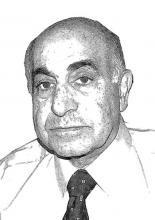
Jordan- New Arab fire erupts in Lebanon
After years of uncertainty, political stagnation and institutional deadlock, Lebanon managed to reasonably reconcile major divisive issues by electing a president, albeit two years behind schedule, and a coalition administration approved by the parliament.
Agreement among otherwise opposing factions on the election of Michel Aoun as president for Lebanon in October 2016 was soon followed by the appointment of a coalition Cabinet under prime minister Saad Hariri, chairman of Al Mustaqbal Party, in December of the same year, which marked a new era of stability and normalcy in the vibrant Arab country that was once described as the Arab Switzerland.Hariri's sudden resignation at the beginning of this week, however, has once again dashed hopes, not only for Lebanon, but for the entire region as well.
It might still be too early to predict consequences in either direction, but under the prevailing circumstances all over the area, it is hard to expect any assuring outcomes from this alarming development.The major positive achievements in Iraq and Syria in ridding their territories from the terrorist group Daesh, significant as indeed they are, have been marred by the emergence of new types of dispute.
The Iraqi people were barely ready to celebrate the closure of the dark chapter of 'Daesh', their barbaric and savage practices for over three years and the vast destruction they left in their wake when they had to cope with the Kurdish referendum and the threat it posed to the unity of the Iraqi territory.Similar consequences are to be expected in Syria once 'Daesh' is completely done away with.
If the priority of the Syrian war was to annihilate 'Daesh', which is almost completed, the other conflicts among the many other conflicting factions currently in control of Syrian land that the state wants to liberate and regain control of will immediately follow.In the meantime, the wars in Yemen and Libya show no sign of abating. Neither are there signs that the 5-month-old Gulf Cooperation Council dispute with Qatar is to be resolved anytime soon.
With such a disastrous Arab situation that is not only unnecessarily and vainly consuming massive Arab wealth and potential, but also causing sweeping destruction that requires trillions more to rebuild again, how can the Arab people regain confidence in the crumbling Arab order?But worse than the material destruction of entire cities, towns, villages and vast areas, worse than the squandering of wealth and assets is the destruction of institutions and state structures.
The endless wars that have no logic or are impossible for the ordinary Arab citizen to comprehend are also destroying entire societies, demoralising population, fragmenting communities and awakening the worst instincts of sectarian, religious and ethnic strife as never seen before.That will be much harder to address than buildings, cities and roads.
While witnessing such senseless devastation, meaningless fighting and continued destruction, whether resulting from external aggression or homegrown, bewildered ordinary Arab citizens wonder where are their leaders, the expected wisdom and responsible leadership that should jump in to confront the crisis, put an end to confrontational policies and reach solutions.They ask about the Arab League and why it is maintaining a deadly silence while the Arab world is on fire.
They wonder about the purpose of such wars and if they would eventually produce any winners.The conviction that there are no winners is not only strengthened by the experience of the past; it is also already clear and evident.
All engaged parties are being bled to death. Those who insist on taking their wars to the end are only insisting on taking their destinations to their end too.Why are we, in this part of the world, behaving in such a horrific manner?
There must be reasons within reach.We need to have the courage to look for them and identify them. But again, that requires able and competent leaders to take charge and to lead; leaders armed with their peoples' trust and support.
This is not difficult to conceive. Yes, the fact that this country, Jordan, remains stable and safe is due to a sound state structure from the bottom to the top, consensus, wise and responsible leadership, and competent institutions.If, however, that works at country level, more is needed at a collective Arab level if we in the Arab world intend to remain as one nation within an Arab household.
For that we need an immediate Arab summit to put all issues on the table and to agree on practicable solutions.Jordan remains loyal to its commitment to a stable, peaceful and prosperous Arab region. Towards that goal, the Jordanian Monarch is relentless in his efforts to reduce tensions, not just because Jordan is a current Arab summit president, but also because this is a standard and constant Jordanian tradition.
It is vital to Jordan's interests to see a stable Gulf region, a stable Iraq, Syria, Libya and Yemen.
It is an essential Jordanian goal to help end all conflicts by negotiations and fair settlements that take into consideration the interests and the concerns of all parties. Any harm that befalls an Arab country implicates all of us. Why not give wisdom and patient diplomacy a chance?

Legal Disclaimer:
MENAFN provides the
information “as is” without warranty of any kind. We do not accept
any responsibility or liability for the accuracy, content, images,
videos, licenses, completeness, legality, or reliability of the information
contained in this article. If you have any complaints or copyright
issues related to this article, kindly contact the provider above.


















Comments
No comment